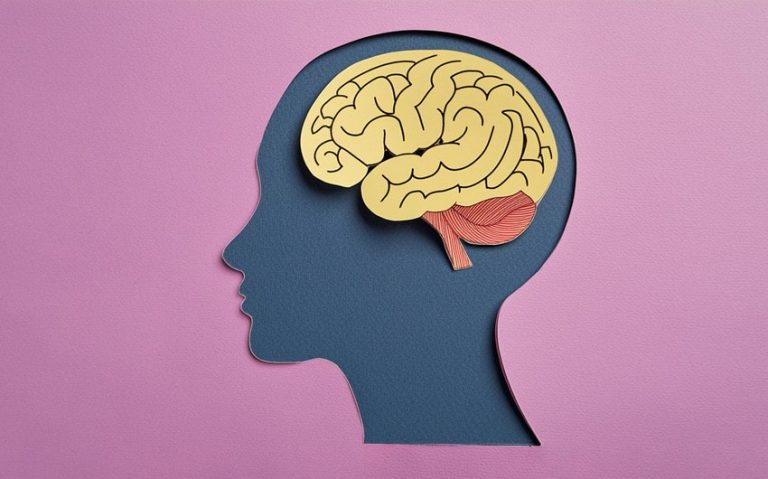Have you ever wondered, “Why do I feel hungry after eating?” You’re not alone. This perplexing sensation, where hunger strikes soon after a meal, baffles many. In this article, we delve into the mysteries behind post-meal hunger.
From the intricate dance of hormones and digestive processes to psychological influences and lifestyle factors, we explore the myriad reasons that might explain this counterintuitive hunger, providing insights into a question that puzzles eaters everywhere.
Understanding Hunger: A Basic Overview

Image source: Pinterest
Hunger is the body’s natural way of signaling the need for more energy, typically in the form of food. This sensation arises from a complex interaction between the digestive system, the brain, and various hormones. At its core, hunger is regulated by a combination of physiological mechanisms and hormonal signals.
Central to the regulation of hunger is the role of hormones. Ghrelin, often referred to as the “hunger hormone,” is produced in the stomach and signals the brain to stimulate the feeling of hunger.
When the stomach is empty, ghrelin levels increase, prompting the desire to eat. Conversely, after eating, ghrelin levels decrease as the stomach stretches and becomes full, typically leading to a sensation of satiety.
Leptin, another key hormone, is produced by fat cells. It communicates with the brain, particularly the hypothalamus, to indicate that enough fat is stored and that there is no need to eat more. High levels of leptin signal the brain to reduce appetite, helping to regulate food intake and maintain an energy balance.
The brain plays a crucial role in interpreting these hormonal signals. The hypothalamus, a small region in the brain, acts as a control center for hunger and satiety. It processes the information received from ghrelin, leptin, and other hormones and nutrients, and then coordinates the body’s response.
In addition to hormonal influences, several other factors can affect hunger. These include the stomach’s stretching, which is a physical signal of fullness, and nutrient signals from the intestines and bloodstream, which provide feedback on the body’s energy status and the types of nutrients consumed.
Understanding hunger involves recognizing this interplay between hormones, the brain, and the body’s energy needs. While hunger is a natural and necessary sensation prompting us to meet our body’s energy requirements, its regulation can be influenced by various internal and external factors, leading to the curious phenomenon of feeling hungry even after eating.
10 Common Causes of Post-Meal Hunger

Image source: Pinterest
Understanding why we sometimes feel hungry shortly after eating requires a closer look at several factors that can influence our body’s hunger signals:
1. Rapid Digestion of Certain Foods
Foods high in simple sugars and low in fiber, such as white bread, pastries, and sugary snacks, can be digested quickly. This rapid digestion leads to a swift rise in blood sugar, followed by an equally rapid decline.
This rollercoaster of blood sugar levels can trigger the body’s hunger signals prematurely, as the quick drop in blood sugar is often interpreted by the body as a need for more energy.
2. Low Protein or Fat Content in Meals
Protein and fats play a crucial role in satiety. They take longer to digest and help slow down the overall digestion process, which keeps you feeling full longer. Meals that are low in these macronutrients can lead to a quicker return of hunger.
For instance, a meal rich in carbohydrates but lacking in protein or healthy fats (like a plain pasta dish) may leave you feeling hungry soon after eating.
3. Not Enough Fiber
Fiber is essential for adding bulk to your diet and slowing the digestive process. It helps to regulate the body’s sugar absorption, providing a more consistent energy release and a feeling of fullness. Low-fiber meals, such as those lacking in fruits, vegetables, whole grains, or legumes, can result in a quicker digestion and a faster onset of hunger.
For example, a meal of white rice and chicken, devoid of vegetables or whole grains, might leave you feeling unsatisfied shortly after finishing.
4. Portion Size
The size of the meal can significantly impact how long you feel full. Smaller portions may contain fewer calories, which can be beneficial for weight control, but they may not always provide enough energy to satisfy hunger for a long period.
This is particularly true if the meal lacks a balance of macronutrients (carbohydrates, proteins, and fats) and essential micronutrients (vitamins and minerals). A small salad with just lettuce and cucumber, for example, is low in calories but also low in the nutrients and energy needed to stave off hunger.
5. Psychological Misinterpretation of Fullness Cues
Our perception of hunger and fullness is not solely dependent on physical signals. Psychological factors play a significant role in how we interpret these cues. For example, emotional states such as stress or boredom can lead to a perceived sense of hunger, despite having eaten recently.
Additionally, distractions during meals, such as watching TV or working on a computer, can prevent us from properly recognizing when we’re full, leading to a false sense of hunger shortly after eating.
6. Influence of High Glycemic Index Foods
Foods with a high glycemic index (GI) are known to cause a rapid increase in blood sugar levels, followed by a swift decline. This rapid fluctuation can trigger hunger signals in the brain. High GI foods include processed snacks, sugary beverages, and refined carbohydrates.
For instance, consuming a meal primarily composed of these foods (like a lunch of white bread sandwich with a sugary drink) can lead to a spike and then a rapid drop in blood sugar, causing the body to crave more food for energy replenishment.
7. Habitual Eating Patterns
The body’s internal clock, or circadian rhythm, can influence our eating habits and hunger signals. If you’re accustomed to eating snacks or meals at certain times, your body can start to expect food at these times out of habit, irrespective of whether you’re physically hungry.
This conditioned response can manifest as hunger pangs, even after consuming a complete meal. For example, if you habitually eat a snack at 3 PM, you might feel hungry at this time regardless of the size or content of your lunch.
8. Gastric Emptying Rate
This refers to the speed at which food leaves the stomach and enters the small intestine. Foods that have a fast gastric emptying rate, such as those high in sugar and low in fiber, fat, and protein, can lead to a quicker onset of hunger.
On the other hand, meals that are rich in fiber, fats, and proteins typically have a slower gastric emptying rate, prolonging the feeling of fullness. For instance, a meal consisting mainly of simple carbohydrates, like a plain bagel, may leave the stomach quickly, signaling the brain that it’s time to eat again sooner than a more balanced meal would.
9. Inadequate Hydration
Often overlooked, hydration plays a pivotal role in our sense of hunger and satiety. Dehydration can be misinterpreted by the body as hunger, leading to the sensation of needing food when, in reality, what the body requires is water.
This confusion occurs because the same part of the brain is responsible for interpreting both hunger and thirst signals. For example, you might feel a pang of hunger after a meal, but actually, you might just be dehydrated and in need of a glass of water.
10. Hormonal Fluctuations
Hormones significantly influence our appetite and digestion. Variations in hormonal levels due to factors like stress, menstrual cycles, sleep disturbances, or medical conditions can impact hunger cues.
Stress, for instance, can increase levels of cortisol, a hormone that may stimulate appetite. Similarly, changes in insulin sensitivity or thyroid function can affect how the body processes food and perceives hunger. Therefore, a feeling of hunger post-meal might sometimes be a reflection of underlying hormonal changes rather than an actual need for more food.
Each of these factors can contribute to the experience of feeling hungry after eating. Understanding and addressing these issues can help in better managing hunger and maintaining a balanced diet.
Psychological Factors

The role of psychological factors in hunger and eating behavior is significant and complex. These factors can heavily influence how we perceive hunger and fullness, often independent of our body’s actual nutritional needs. Here are key psychological factors that might explain why you feel hungry after eating:
1. Emotional Eating
Emotions can play a powerful role in driving hunger and eating behaviors. Stress, boredom, sadness, or even happiness can lead to eating when not physically hungry. Emotional eating is characterized by the consumption of food in response to feelings rather than physical hunger cues.
For instance, turning to comfort food after a stressful day at work, even if you’ve already eaten a full meal, is a classic example of emotional eating.
2. Mindless Eating
Eating without paying attention to what or how much is being consumed can lead to overeating or feeling unsatisfied after a meal. This often happens when eating while distracted – for example, eating in front of the TV or computer, or while driving.
Mindless eating makes it difficult to recognize satiety cues, leading to continued eating or a quick return of hunger sensations post-meal.
3. Habitual Eating
This involves eating at certain times out of habit, regardless of whether you are actually hungry. If you’re accustomed to eating a snack at a certain time every day, your body may start to expect food at that time, triggering hunger signals.
Habitual eating can override the body’s natural hunger cues, leading to the sensation of hunger even if the body does not require more energy.
4. Social Influences
Social settings and cultural norms can heavily influence eating behaviors and perceptions of hunger. Eating in a group, for instance, can lead to consuming more food than when eating alone.
Similarly, cultural norms around meal sizes, snacking, and what constitutes a “proper meal” can impact how much and when we eat, sometimes leading to a feeling of hunger even after a substantial meal.
5. Conditioned Responses
Certain environments or stimuli can trigger hunger cues as a conditioned response, even in the absence of physiological hunger. For example, smelling food, seeing advertisements for food, or entering a kitchen can evoke a sense of hunger due to the association these cues have with eating.
6. Cognitive Beliefs About Food
Personal beliefs about certain foods and diets can influence feelings of hunger. For instance, if you believe a particular food is not filling or nutritious enough, you may feel hungry after consuming it, regardless of its actual nutritional content or caloric value.
Understanding these psychological factors is crucial in addressing why you might feel hungry after eating. Recognizing and modifying these behaviors and perceptions can lead to a healthier relationship with food and a better understanding of your body’s hunger signals.
Medical Conditions and Hunger

Certain medical conditions can significantly influence hunger levels and may explain why some individuals feel hungry after eating. These conditions affect the body’s metabolism, hormone levels, and overall sense of satiety. Here are a few key medical issues to consider:
- Diabetes: Fluctuations in blood sugar levels, common in diabetes, can lead to frequent feelings of hunger. Both high and low blood sugar levels can trigger the body’s hunger response.
- Hyperthyroidism: An overactive thyroid (hyperthyroidism) speeds up the body’s metabolism, leading to increased appetite. Despite eating regular meals, individuals with hyperthyroidism may still feel hungry.
- Hypoglycemia: Characterized by low blood sugar levels, hypoglycemia can cause a strong sense of hunger, even if one has eaten recently. It’s commonly experienced by people taking certain diabetes medications.
- Gastrointestinal Disorders: Conditions such as gastritis, peptic ulcers, or irritable bowel syndrome (IBS) can impact how the body processes and absorbs food, potentially leading to feelings of hunger soon after eating.
- Hormonal Imbalances: Conditions that affect hormone levels, such as polycystic ovary syndrome (PCOS) or adrenal gland disorders, can influence appetite and hunger.
- Medications: Certain medications, including some antidepressants, corticosteroids, and antipsychotics, can increase appetite as a side effect.
It’s important for individuals experiencing persistent or unexplained hunger after eating to consult with a healthcare professional to rule out or properly manage any underlying medical conditions.
Practical Tips to Manage Post-Meal Hunger

Managing post-meal hunger effectively involves a combination of dietary adjustments, mindful eating practices, and lifestyle changes. Here are some practical tips:
- Balance Your Meals: Include a mix of proteins, healthy fats, and fiber-rich foods in your meals. This combination helps slow down digestion and increases satiety.
- Stay Hydrated: Drink plenty of water throughout the day. Sometimes, what feels like hunger is actually dehydration.
- Eat Mindfully: Pay attention to your food and eat slowly. This helps you recognize fullness cues and reduces the likelihood of overeating.
- Control Portion Sizes: Eating appropriate portion sizes can prevent overeating while ensuring you’re getting enough food to satisfy your hunger.
- Include Snacks: Healthy snacks between meals can help manage hunger, especially snacks high in protein and fiber.
- Avoid High Glycemic Index Foods: Limit foods that cause rapid spikes in blood sugar, as they can lead to quicker feelings of hunger.
- Regular Eating Schedule: Stick to a regular eating schedule to stabilize hunger patterns and avoid unnecessary snacking.
- Check in with Emotions: Be aware of emotional eating and find alternative ways to cope with emotions besides food.
- Physical Activity: Regular exercise can regulate appetite hormones and improve your body’s response to hunger signals.
- Consult a Professional: If you’re consistently experiencing unusual hunger, consider consulting a dietitian or healthcare provider for personalized advice.
Implementing these strategies can help manage post-meal hunger and maintain a healthier relationship with food.
Conclusion
Feeling hungry after eating can be a complex issue, influenced by a variety of factors. Understanding these can help in addressing this puzzling sensation. It’s important to listen to your body and seek professional advice if needed. By paying attention to what, when, and how we eat, we can better manage our hunger and overall health.







